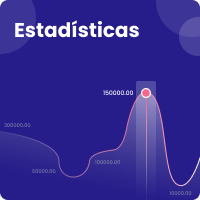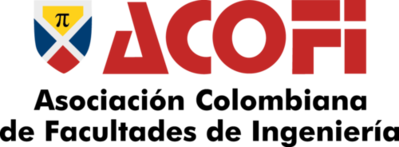Team Programming estrategias de evaluación integradas a la enseñanza
DOI:
https://doi.org/10.26507/paper.2118Palabras clave:
Pair Programming, Team Programming, Trabajo en equipo, Honestidad académica, Motivación académicaResumen
Durante la pandemia y después de ella se buscaba una estrategia que garantizara la motivación de los estudiantes y profesores en el curso de Algoritmia y Programación II, uno de los cursos en el plan de estudio al inicio de la carrera de Ingeniería de Sistemas y que puede resultar complicado y aburridor para algunos estudiantes. Team Programming es la estrategia de evaluación integrada a la enseñanza que consiste en agrupar a los estudiantes en equipos, en lo posible heterogéneos, con el fin de que estos realicen durante todo el semestre académico las diferentes actividades utilizando herramientas colaborativas y grabando las sesiones por un canal dedicado en MS Team donde luego el profesor evalúa estas grabaciones. Estos canales se convirtieron en los espacios adecuados para pensar, interactuar y hacer posible la formación del hombre ético, creativo y estético. Team Programming está basado en Pair Programming para que los estudiantes al aprender programación puedan desarrollar las competencias de Solución de Problema y Trabajo en Equipo en un ambiente divertido con experiencias de aprendizajes significativas y contextualizadas al mismo tiempo que desarrollan las habilidades de comunicación y ética. Las grabaciones de los equipos se convierten en medio para la mejora continua del profesor, así como un activo para que más profesores en el programa puedan replicar esta estrategia que incentiva la retención de los estudiantes al tiempo que se logra un buen desempeño académico de los estudiantes.
Descargas
Citas
Adeliyi, A., Wermelinger, M., Kear, K., & Rosewell, J. (2021, September). Investigating Remote Pair Programming In Part-Time Distance Education. In United Kingdom and Ireland Computing Education Research conference. (pp. 1-7).
Alhazbi, S. (2015, July). ARCS-based tactics to improve students' motivation in computer programming course. In 2015 10th International Conference on Computer Science & Education (ICCSE) (pp. 317-321). IEEE.
Anderson, N., & Gegg-Harrison, T. (2012, May). Pair2 learning= pair programming× pair teaching. In Proceedings of the Seventeenth Western Canadian Conference on Computing Education (pp. 2-6).
Assiri, F. Y. (2016, July). Recommendations to improve programming skills of students of computer science. In 2016 SAI computing conference (SAI) (pp. 886-889). IEEE.
Dey, S. K., & Sobhan, M. A. (2006, July). Impact of unethical practices of plagiarism on learning, teaching and research in higher education: Some combating strategies. In 2006 7th International Conference on Information Technology Based Higher Education and Training (pp. 388-393). IEEE.
Du, W., Ozeki, M., Nomiya, H., Murata, K., & Araki, M. (2015, July). Pair programming for enhancing communication in the fundamental c language exercise. In 2015 IEEE 39th Annual Computer Software and Applications Conference (Vol. 3, pp. 664-665). IEEE.
Flieger, J., & Palmer, J. D. (2010). Supporting pair programming with JavaGrinder. Journal of Computing Sciences in Colleges, 26(2), 63-70.
Giri, M., & Dewangan, M. (2012, January). A study of pair programming in the context of facilitating the team building. In 2012 Second International Conference on Advanced Computing & Communication Technologies (pp. 20-23). IEEE.
Gold-Veerkamp, C., Klopp, M., & Abke, J. (2019, April). Pair Programming as a Didactical Approach in Higher Education and its Evaluation. In 2019 IEEE Global Engineering Education Conference (EDUCON) (pp. 1055-1062). IEEE.
Hanks, B. (2006, June). Student attitudes toward pair programming. In Proceedings of the 11th annual SIGCSE conference on Innovation and technology in computer science education (pp. 113-117).
Höfer, A. (2008, May). Video analysis of pair programming. In Proceedings of the 2008 international workshop on Scrutinizing agile practices or shoot-out at the agile corral (pp. 37-41).
Jacobson, N., & Schaefer, S. K. (2008). Pair programming in CS1: overcoming objections to its adoption. ACM SIGCSE Bulletin, 40(2), 93-96.
Konecki, M. (2020). Impact of distance learning on motivation and success rate of students during the covid-19 pandemic. In 2020 43rd International Convention on Information, Communication and Electronic Technology (MIPRO) (pp. 813-817). IEEE.
Kustanto, C., & Liem, I. (2009, May). Automatic source code plagiarism detection. In 2009 10th ACIS International conference on software engineering, artificial intelligences, networking and parallel/distributed computing (pp. 481-486). IEEE.
Lai, H., & Xin, W. (2011, December). An experimental research of the pair programming in java programming course. In Proceeding of the International Conference on e-Education, Entertainment and e-Management (pp. 257-260). IEEE.
Lumseyfai, J., Holzer, T., Blessner, P., & Olson, B. A. (2019). Best practices framework for enabling high-performing virtual engineering teams. IEEE Engineering Management Review, 47(2), 32-44.
Matturro, G., Raschetti, F., & Fontán, C. (2015, May). Soft skills in software development teams: A survey of the points of view of team leaders and team members. In 2015 IEEE/ACM 8th International Workshop on Cooperative and Human Aspects of Software Engineering (pp. 101-104). IEEE.
McDowell, C., Werner, L., Bullock, H., & Fernald, J. (2002, February). The effects of pair-programming on performance in an introductory programming course. In Proceedings of the 33rd SIGCSE technical symposium on Computer science education (pp. 38-42).
McDowell, C., Hanks, B., & Werner, L. (2003, June). Experimenting with pair programming in the classroom. In Proceedings of the 8th annual conference on Innovation and technology in computer science education (pp. 60-64).
Mokdad, M., & Aljunaidi, S. (2020, December). Whither plagiarism in distance learning academic assessment during COVID-19?. In 2020 Sixth International Conference on e-Learning (econf) (pp. 1-5). IEEE.
Nawahdah, M., & Taji, D. (2015, December). Work in progress: Investigating the effects of pair-programming on students' behavior in an advanced computer programming course. In 2015 IEEE International Conference on Teaching, Assessment, and Learning for Engineering (TALE) (pp. 157-160). IEEE.
Prabhakar, A. B. (2011, October). Applying pair programming for advanced java course: a different approach. In Proceedings of the 2011 conference on Information technology education (pp. 319-320).
Smith, M. O., Giugliano, A., & DeOrio, A. (2017). Long term effects of pair programming. IEEE Transactions on Education, 61(3), 187-194.
Terzakis, J. (2011). Virtual retrospectives for geographically dispersed software teams. IEEE software, 28(3), 12-15.
Universidad Simón Bolívar (2019). Proyecto Educativo Institucional PEI.
Yuan, H., & Cao, Y. (2019, February). Hybrid pair programming-a promising alternative to standard pair programming. In Proceedings of the 50th ACM Technical Symposium on Computer Science Education (pp. 1046-1052).
Williams, L., & Upchurch, R. L. (2001). In support of student pair-programming. ACM SIGCSE Bulletin, 33(1), 327-331.
Zarb, M. (2012, October). Understanding communication within pair programming. In Proceedings of the 3rd annual conference on Systems, programming, and applications: software for humanity (pp. 53-56).
Zieris, F., & Prechelt, L. (2014, September). On knowledge transfer skill in pair programming. In Proceedings of the 8th ACM/IEEE International Symposium on Empirical Software Engineering and Measurement (pp. 1-10).
Descargas
Publicado
Cómo citar
Evento
Sección
Licencia
Derechos de autor 2022 Asociación Colombiana de Facultades de Ingeniería - ACOFI

Esta obra está bajo una licencia internacional Creative Commons Atribución-NoComercial-SinDerivadas 4.0.
| Estadísticas de artículo | |
|---|---|
| Vistas de resúmenes | |
| Vistas de PDF | |
| Descargas de PDF | |
| Vistas de HTML | |
| Otras vistas | |








